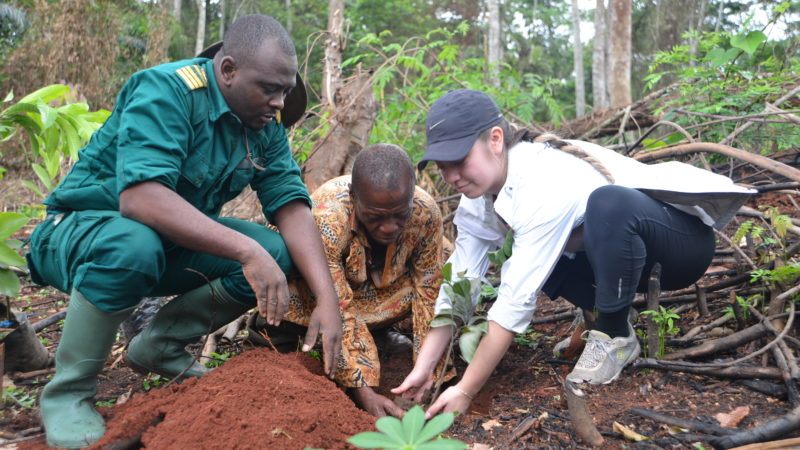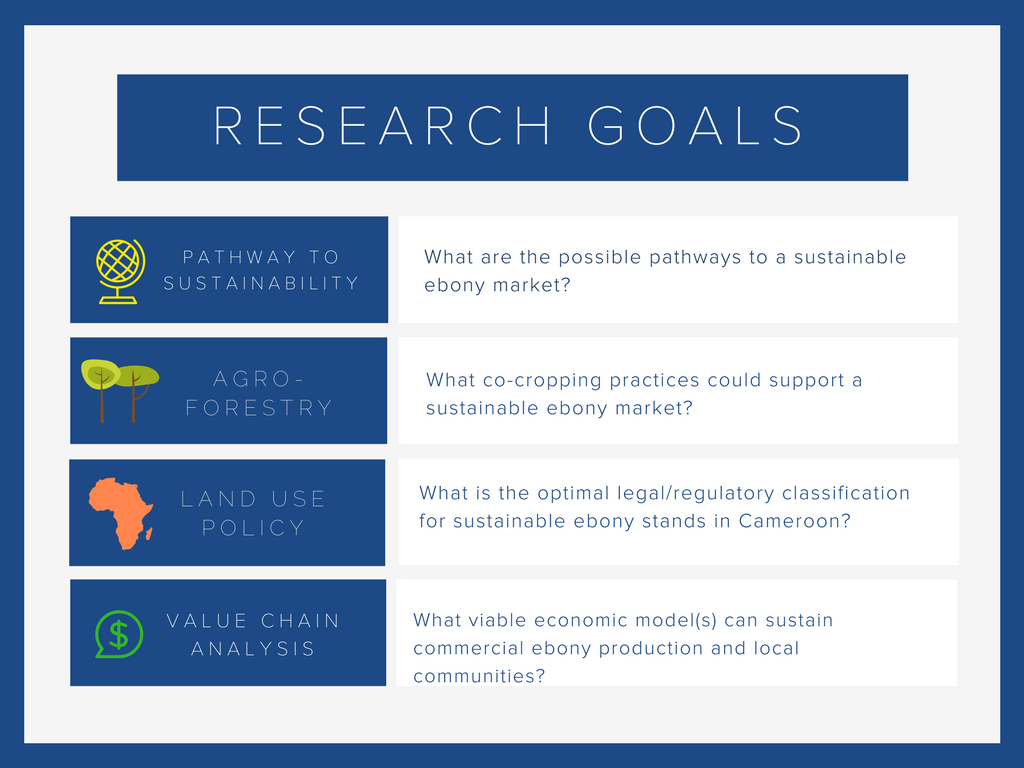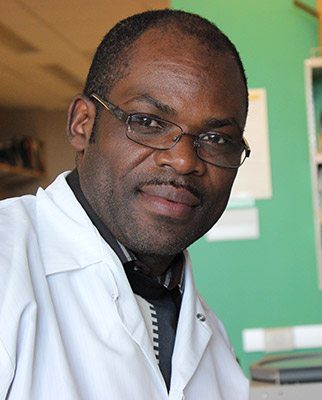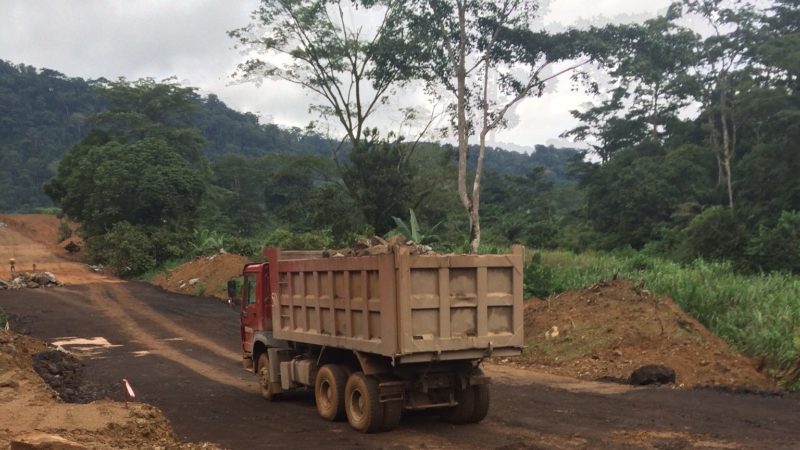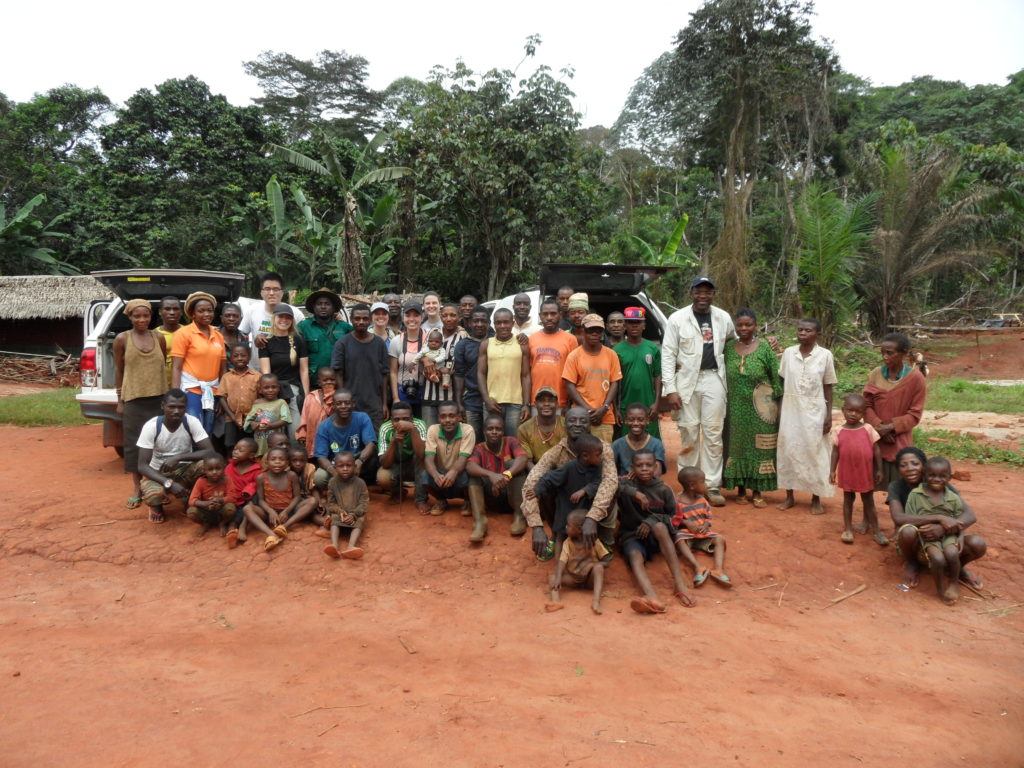
Students: Sarah Casey, Kenyon Chow, Diana Krichevsky, Abigail Mejia, Emily Parker
Advisor: Kevin Njabo
Clients: Taylor Guitars
Our Team
We are the UCLA Undergraduate Research Team for Sustainable Ebony Production in Cameroon, a team within the Senior Practicum for Environmental Science majors in the Institute of Environment & Sustainability (IoES). The senior practicum program allows us to apply our knowledge of environmental science in a more specific setting for a real-world client. As seniors at UCLA’s Institute of the Environment and Sustainability, we have learned that trying to make a positive difference in the environment often requires us to go beyond working inside our comfort zone.
To us, learning is more than something you read in a book or look up on the internet; learning is something done by experiencing adversity and researching issues first hand. This is not just something we can accomplish behind the comfort of a desk at UCLA. We believe in a hands-on approach to research, and in order to create the best possible outcomes for our project, we needed to experience Cameroon. Thus, the core component of our project was a trip to the Crelicam sawmill in Cameroon as well as the local communities affected by ebony production. The information we gathered in Cameroon will help us successfully finish our project.
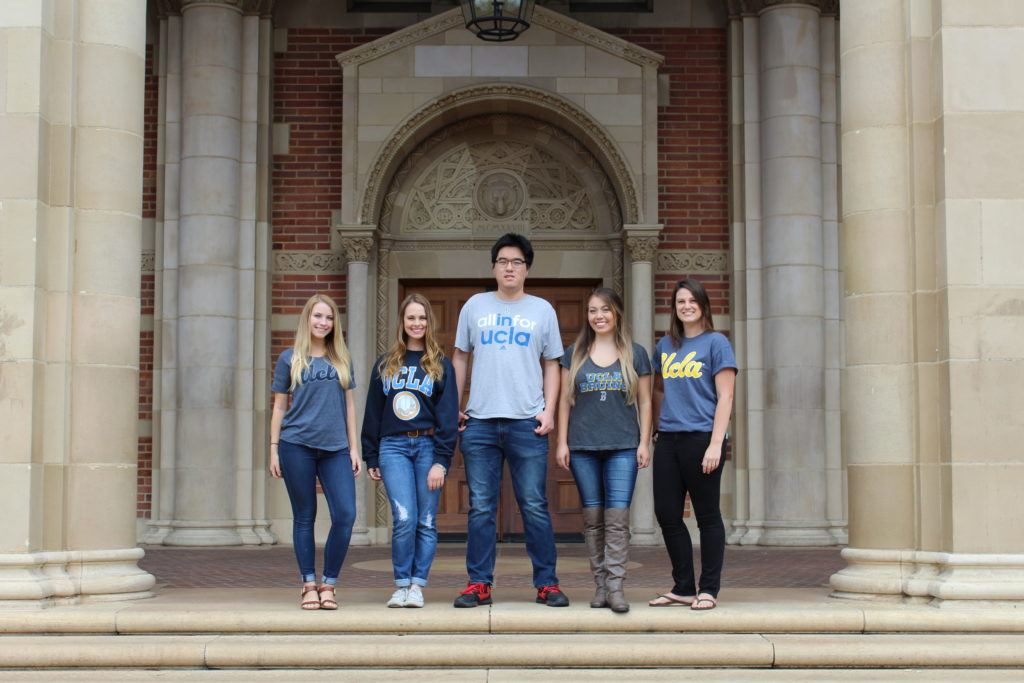
As the first student research group to collaborate with UCLA’s only international affiliate, the Congo Basin Institute, we believe that our work is a positive influence to all involved stakeholders including the communities of Cameroon and UCLA. With the help of UCLA Spark, the National Science Foundation and donor support, the UCLA Taylor Guitars Undergraduate Research Team traveled to Cameroon in March 2017 and visited the Crelicam ebony sawmill, the International Institute of Tropical Agriculture, the Congo Basin Institute, Higher Institute of Environmental Studies, World Agroforestry Centre, and an ebony producing community where we planted 100 trees in two rural villages. We raised all the money necessary for the trip through UCLA’s very own crowdfunding platform and we are incredibly grateful to all who generously donated.
About Our Project
In this project, we are partnered with Taylor Guitars and its affiliate Madinter to design a model of sustainable ebony production for their Crelicam sawmill in Yaoundé, Cameroon. Collaborating with the researchers of the Center for Tropical Research and UCLA’s first international affiliate, Congo Basin Institute, we will be developing a sustainable ebony logging and manufacturing model that is sensible in economic, ecological, political and legal contexts while at the same time maximizing the engagement of the local community.
Specifically, we will be focusing our efforts on studying the potential and the feasibility of co-cropping in the plantation as well as developing realistic models of participatory development. As ebony trees often take up to 80 years to mature and to become economically viable, the main strategic focus of our model would be improving the short-term economic viability of growing ebony for the local communities. These communities would be investing significant amounts of time and patience in growing the ebony trees. This short-term economic return will take the form of fruit trees given to the community so they can eat and sell the products. This is a part of our team’s co-cropping efforts and several species have been identified as viable to co-crop with ebony in order to create a return for the community.
Ebony

Our project revolves around the ebony trees of Cameroon, or Diospyros crassiflora. These trees are known for their dark black wood which is often used to produce musical instruments such as guitars and pianos. Ebony trees take about 80 years to mature… cutting them down takes about a minute. Without an appropriate model to regulate commercial logging activities, illegal and unsustainable logging would put an entire life’s worth of time, and the survival of a species, at risk in a minute. We are here to protect the ebony trees and help save the world #onetreespecies at a time.
Sustainability
Just like all of Earth’s other resources, ebony comes in a finite number of species, and within each species, a finite number of individuals. Unfortunately, low ebony population numbers coupled with high demand for their wood has left them subject to overexploitation. Currently, D. crassiflora is on the IUCN’s Red List, meaning the species is threatened with global extinction.
Community
At the heart of the operation, the community and the people involved in country is what makes this all possible and their livelihood is important to Taylor Guitars, Madinter, UCLA, and our research team. Our team is currently working on a report that strives to answer all of our research questions, but also compiles all known and relevant information on the topic in one place to serve as a stepping stone for future researchers.

